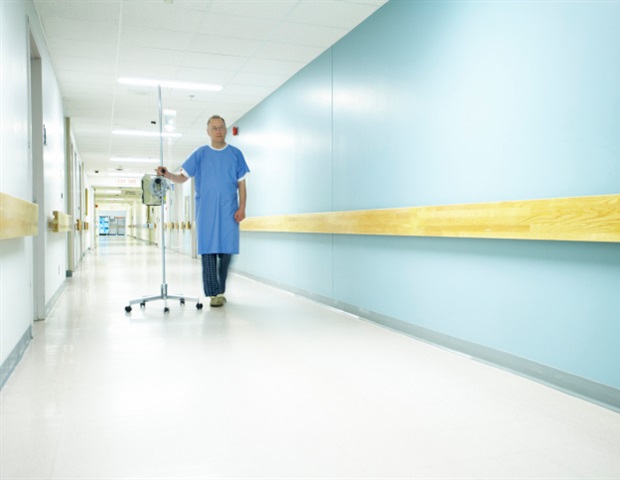The Ataxia Center at the University Hospital Bonn (UKB) and DZNE have been awarded the title "Ataxia Center of Excellence" by the US National Ataxia Foundation (NAF) for their patient care and research – as the only organization in Europe. The foundation represents patient interests and is one of the world's major non-governmental funders of ataxia research. These rare brain diseases are characterized by progressive loss of balance and coordination, accompanied by slurred speech. It is estimated that this condition affects around 16,000 women and men in Germany.
The NAF awarded the title "Ataxia Center of Excellence" to 19 hospitals and institutes worldwide. The quality of patient care and clinical research were evaluated. Only four organizations are located outside the United States. The tandem of UKB and DZNE is the only honored institution in Europe.
This is a great recognition for the work of our entire team. With outpatient and inpatient treatment as well as interdisciplinary conferences, we offer a comprehensive range of services specifically for patients with ataxias. The close interaction of patient care and research at our site is exceptional and outstanding."
Dr. Jennifer Faber, Deputy Director of the Ataxia Center at UKB and research associate at DZNE
Care and research
For years, Bonn has been a recommended center for the care of people with ataxias and a driving force in ataxia research. More than 250 patients attend the Ataxia Center of the UKB every year. Often, their health development is followed by the Bonn experts for years. In addition, the team led by Prof. Thomas Klockgether – who is also Director of Clinical Research at DZNE and Director of the Department of Neurology at UKB – is running various clinical observational and interventional studies. A European network for research in hereditary ataxias is coordinated from Bonn. More than 150 of the patients participate in study visits at DZNE each year, and thus supporting research in the field of theses rare diseases.
Science and perspectives
Up to now, there is no cure for ataxias. All ataxia show amongst other neurodegeneration pathological alterations and consecutive dysfunction of the cerebellum. As a result, power and metric of movements is impaired. Common symptoms are gait disturbances, impaired balance and slurred speech. Physiotherapy has a positive effect on symptoms – but it is only a symptomatic treatment and does not address the causes. However, Thomas Klockgether has hopes that it might be possible to tackle at least some forms of ataxia at their roots. "The pharmaceutical industry has developed experimental compounds that target disease-relevant genes. We are in talks with the manufacturers to participate in testing these substances. Such trials require large and well-characterized groups of patients. We have built up such study cohorts over many years. For pharmaceutical companies, this qualifies us a scientific partner," Klockgether says.
One focus of ataxia research in Bonn is to investigate pathological changes in the cerebellum occurring early in the course of the disease by using magnetic resonance imaging. "As part of our research, we identify structural alterations in the cerebellum that are measurable long before the onset of symptoms, such as gait disturbances," explains Jennifer Faber. "If effective gene therapies become available in the future, such findings will allow interventions even before the onset of symptoms. We hope that such early treatments have the potential to, if not prevent, at least delay the onset of ataxia."
DZNE – German Center for Neurodegenerative Diseases
Posted in: Medical Condition News | Healthcare News
Tags: Ataxia, Brain, Dementia, Gene, Genes, Healthcare, Hospital, Imaging, Magnetic Resonance Imaging, Movement disorders, Nervous System, Neurodegeneration, Neurodegenerative Diseases, Neurology, Physiotherapy, Research, Running, Speech, students
Source: Read Full Article






